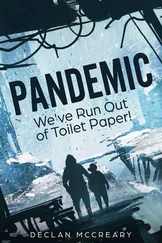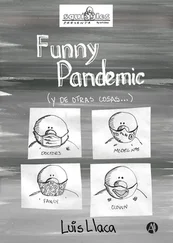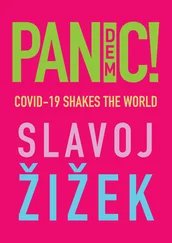Again contrary to popular belief, a notable peculiarity of Ebola and the other viral haemorrhagic fevers is that the organs themselves are not destroyed. Despite the huge amounts of blood present in them, the actual tissues of the organs remain perfectly healthy – in effect, they have ceased to function because they have drowned in blood. And if a patient does manage to survive an attack by Ebola, he or she will normally suffer no lasting ill-effects: once the virus has been eliminated from the body, the organs will begin working normally once again.
In short, an attack by Ebola is essentially functional – the virus attacking the whole body through the circulatory system – rather than biochemical, in that there is no destruction of cells or organs. The attack is always very fast but the recovery, if the patient is lucky enough to survive, is also both fast and complete.
But one other popular ‘fact’ is true: in the latter stages of the infection, one drop – a single millilitre – of a victim’s blood can contain as many as one hundred million virus particles.
The Ebola virus is an extremely simple yet very mysterious organism. Like the other filoviruses, it is a microscopic thread visible only at magnifications in excess of one hundred thousand, and is characteristically very twisted and convoluted at one end – a feature that some virologists call the ‘shepherd’s crook’ or the ‘eyebolt’.
Structurally, it consists of a single strand of ribo-nucleic acid, containing the virus’s genetic code, encased in a sheath of structural proteins of seven different types. Three of these proteins are partially understood, but virtually nothing is known about the other four. The structure and function of these four proteins is a mystery, but the combination in Ebola is lethal – the virus appears specifically adapted to attack the circulatory system, and the human immune system seems completely incapable of fighting back.
It is also, using the tense terminology of the virologists, a badly adapted parasite. A well adapted parasite lives in some kind of harmony with its host: the relationship becomes almost symbiotic, and both host and parasite will survive. Ebola can kill its human host within days, and will itself die unless it can migrate rapidly to another human being.
This fact suggests that Ebola has another host somewhere, some animal or bird living in the tropical rainforest in Zaïre which carries the virus but is essentially unaffected by it, yet nobody has any idea what that host might be. It also implies that either Ebola has mutated naturally, or it has been manufactured, to become capable of attacking the human immune system.
In its effects, if not in its appearance, it does resemble some other viruses. It appears to be distantly related to those which cause mumps, measles and rabies, for example, and also pneumonia and influenza. But these are all benign compared to Ebola and, unlike them, there is no known cure or even treatment for attack by a filovirus.
Marburg, Ebola Zaïre and its slightly less lethal cousin Ebola Sudan, which has only about a fifty per cent lethality, are all classed as Level Four Hot Agents – L4HA – hence Hardin’s speed of reaction once he had read the message on his pager.
‘What have you got?’ Hardin demanded immediately, as he shouldered open the door.
‘It sounds quite like Ebola,’ Walter Cross explained, ‘but if the agent is a filovirus, it’s a hell of a long way from home.’
‘Where is it, then?’
‘Crete,’ Cross replied shortly.
‘That’s Crete as in Crete in the Mediterranean?’ Hardin’s surprise was obvious in his voice.
‘Yup. We – or to be accurate you – are going to have to go in to confirm it, but the message from the reporting doctor makes it sound pretty much like a filovirus infection of some sort. Maybe even some kind of totally new strain.’
Hardin sat down, slid a sheet of notepaper across the desk and began scribbling on it. ‘Ebola in Crete is really scary,’ he continued. ‘An infection in a major holiday area like that could scatter the virus over most of Europe. What about jurisdiction? Do we have an EPI One?’
The Centers for Disease Control is a federal agency. That means before the CDC can send anyone to investigate something within America, the state in which the outbreak occurs or its local health authority has to formally request assistance from the CDC. Outside the United States, exactly the same rules apply: the CDC has to be officially invited to assist by the government or its health ministry.
The form known as EPI 1 is basically a movement order for a CDC officer or team. It confirms that assistance has been requested from the agency, provides a brief summary of the investigation which the CDC intends to undertake, and what it hopes to achieve, lists the names of the CDC personnel who will be involved, and specifies which authorities in the destination government’s health department are to be contacted on arrival.
‘It’s being typed right now,’ Cross replied. ‘We’ve been formally requested to assist by the Cretan health ministry, but the contact list is real short. It’s just one man – Dr Theodore Gravas – and he’s actually now on the scene at this village called Kandíra.’
‘What else have you done so far?’ Hardin asked.
‘I’ve faxed the Cretan health guys the standard list of instructions and warnings. I’ve got people making airline bookings right now, and others recalling the staff you’ll need with you. And I paged you, of course. Good response time, by the way.’
‘Thanks,’ Hardin grunted, abstractedly.
Kandíra, south-west Crete
It had taken Inspector Lavat some three hours to set up the cordon, and would have taken a lot longer if the village hadn’t sat almost on the edge of the cliff. Therefore the seaward side fortunately required no action, but summoning the men he needed from Chaniá and Irakleío had taken time, and even then they were too thinly spread for his liking around the hastily created perimeter.
Gravas had been adamant: nobody was entering or leaving Kandíra until he said so. And that would not occur until he knew for sure exactly what had killed Aristides. The big problem was that he couldn’t perform the diagnosis himself. He and his men would need expert help and specialist equipment, not least biological space suits, just to go anywhere near Aristides’s body again.
When he had telephoned the Cretan Ministry of Health, requesting they contact the Centers for Disease Control and Prevention for urgent assistance, the officials there hadn’t argued for long. Most health professionals would know about Ebola, and the consequences of any kind of a filovirus outbreak erupting in a highly populated tourist destination like Crete simply didn’t bear thinking about. And even that might be the least of their worries. If tourists, returning home to America, Britain and Europe, began incubating any filovirus with a lethality similar to Ebola, they could soon spread an uncontrollable plague that would make the Black Death seem like an attack of head colds.
With the Ministry of Health informed, and the wheels set in motion, Gravas had turned his attention back to his more immediate problem – Kandíra and the people who called the small isolated community home.
There were now several problems he had to address. First, he had to ensure that anyone who had already stepped inside Aristides’s house was fully quarantined. He realized this could be overkill, because Ebola and Marburg are normally spread by body-fluid exchange from an infected victim. But there was a third, little-known, Ebola variant called Ebola Reston, which was lethal to monkeys but for some reason appeared not to affect human beings, and was believed to be transmitted by airborne particles. So it was better not to take any chances.
Читать дальше












